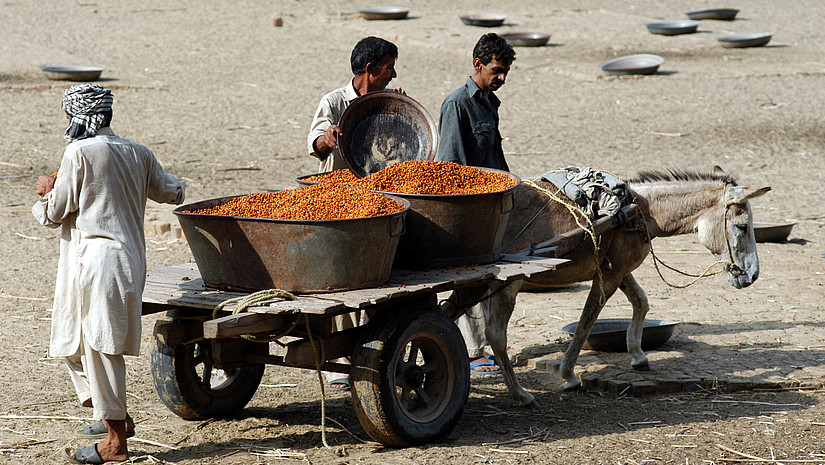Research 2009-2014
Overview
Agriculture provides jobs for 1.3 billion smallholders and landless workers in the developing world. Many of these jobs do not ensure decent levels of income or sustainable livelihoods, mainly for two reasons. On the one hand, value creation is low due to low productivity and soil depletive practices. On the other hand, rural workers are among the most socially vulnerable due to the many obstacles they face against collective action.
Three research clusters investigate these factors in more detail by addressing three main questions:
- How can value creation be increased in order to allow for better working conditions and income of those engaged in value creation?
- Which instruments are best suited to promote decent work in the respective contexts?
- Which strategies are available for empowering workers to ensure decent work by political means?
The research cluster focuses on strategies to increase value creation through the development of technologies for a more efficient and sustainable use of resources and by improving human skills, with a special emphasis on improving agricultural commodity chains. Making use of approaches from agricultural sciences, social sciences and economics, RC01 is also centered around spatially and sectorally detailed urban-rural linkages to address human mobility, goods, services, money transfers, information and re-use of waste and associated fluxes of nutrients, energy and water through the following projects.
Research Projects
- Biodiversity and Variation in Nutritional Properties of Pakistani Dates: Implications for Sustainable Value Chain and Decent Living
- Agrodiversity, labour migration, decent work, and agricultural development in Yucatan, Mexico
- Supply Chain Management at the base of the pyramid
- Remittances for Decent Work
- Coupling Plant and Animal Production Systems for Poverty Alleviation in Cholistan (Pakistan) and Rajasthan (India)
- Adding Value to Agricultural Products Using Solar Energy
Most international agreements on labor migration do not include monitoring of working conditions. Research investigates the impact of these agreements on the working conditions and lives of temporary labor migrants and the potential to include provisions for decent work and gender-sensitivity in future agreements. The ICDD intends to contribute to the debate on the best ways to address this lack of enforcement.
Research Projects
- On the Political Economy of Labor Market and Social Reforms in Latin America
- The Governance of the Financial Sector and its Impact on the Decent Work Agenda
- Creation of Decent Work Employment in rural areas of Laikipia (Kenya) through eco-tourism, with a special focus on village communities
- The Employment Challenge: Towards a Trade and Currency Regime for Decent Work
- Strategies for Overcoming Economic Inequality
- Transnational Trade Union Cooperation in Labour Migrant Sending and Receiving Countries as a Strategy to Promote Decent Work
A search for new sources of power and new forms of organization becomes urgent. What kind of empowerment strategies can already be identified in the informal economy? What role can ILO conventions and human rights interventions play in giving marginalized persons a voice? What forms of participation allow for improving productivity and employment conditions in labor-intensive, low external input production systems? And more fundamentally, what kind of visions for development shall inform the request for more participation, given the limits of the current model of 'development' in light of the impending climate crisis and depletion of polluting fossil fuels?
Research Projects
- Strategies of Empowerment for (Migrant) Domestic Workers
- Work, Livelihood Strategies and Economic Security in the Twenty-first Century
- Working conditions along agricultural value chains
- Decent Work or Decent Life?: The Quest for an Economics of "Happiness"
- Organizing Vulnerable Workers – Comparisons between India, South Africa and Ghana

